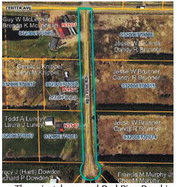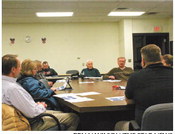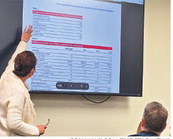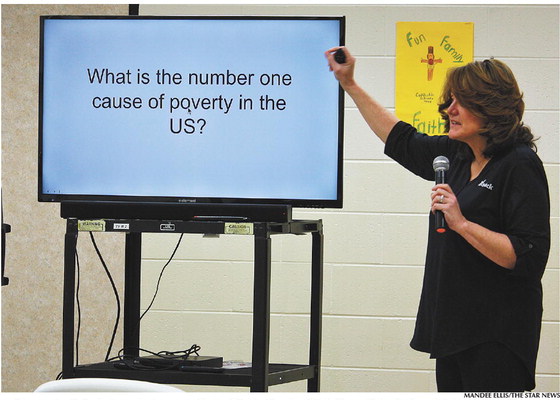County grapples with backlog of default properties
The number of tax-delinquent properties in Marathon County has “grown substantially over the last decade,” but only a fraction of them have gone through the tax deed process, according to deputy county administrator Chris Holman in a presentation to the Human Resources, Finance and Property Committee last week Wednesday.
As of the end of last year, 375 properties throughout the county were eligible for the tax deed process - which allows the county to auction off the property - but as of December 1, only four parcels were ready for foreclosure, Holman said. Speaking on behalf of the county treasurer, he said the high number of deedable properties makes them “a little difficult to manage.”
Four different county departments are involved in the process, he said, which also involves a title search done by a local title company. The Health Department, which does environmental assessments of the properties, can process five to 10 properties per month, with a goal of completing between 40 to 50 this year, Holman said. As of December 1, he said 21 of the properties had been environmentally assessed by the Health Department.
These costs are recouped by the county once the property is sold, he noted.
In the first two months of this year, the treasurer’s office created a list of 50 properties for the title company to research, which was done in March and April. Between April and November, new legal notice templates were created by corporation counsel, and tax deed legal notices were sent to six of the properties, Holman said.
Three property owners have paid off their property taxes and fees, removing them from the list, he said.
Four properties had to be published in the local newspaper because the county could not locate the legal owner, Holman said.
Although the number of properties going through the tax deed process this year is below the goal set by the treasurer’s office, Holman noted several “mitigating factors,” including a new state law that required new legal notices to be written. Also, an administrative coordinator position experienced a high degree of turnover during the year, with three different people in the role, he said.
Holman said a transition to new accounting software also created extra work for treasurer’s office employees.
“That was a major factor of the tax deed project falling short of hitting its goals,” he said.
Looking ahead, he said the goal is to get the remaining 50 properties through the title search and environmental review process. By the end of next year’s first quarter, with the software implementation completed, the treasurer believes it will free up a lot of staff time to focus on the tax deed process, Holman said.
County officials are also looking at working with Wisconsin Surplus Online Auction to accelerate the process of auctioning off tax-delinquent properties, he said.
Supervisor John Robinson said he was disappointed to hear that more progress has not been made on handling the backlog of tax-delinquent properties, noting that it costs the county money over time.
“We buy the tax roll every year from the other units of government, and after the 10th year, we can no longer recover those costs,” he said.
Robinson said he’s open to hearing more ideas on accelerating the tax deed process. “We also need to be more aggressive in trying to deal with this backlog,” he said.
Other business N Committee members talked with county administrator Lance Leonhard about getting a head start on next year’s budgeting process, with talk of getting the standing committees more involved earlier in the process. Board chairman Kurt Gibbs added that more needs to be done to educate new supervisors about how the budget works.
N The committee voted to recommend an amendment to the county’s 2022 capital improvement plan, adding a project at the Bluebird Ridge landfill in Ringle. The project involves closing a 10-acre section of the landfill, so that the DNR will allow for a six-acre expansion elsewhere on contiguous property. The $1.5 million project will be partially funded by a $288,267 loan from the county’s contingency fund, with a 3 percent interest rate and an 18-month repayment schedule.





